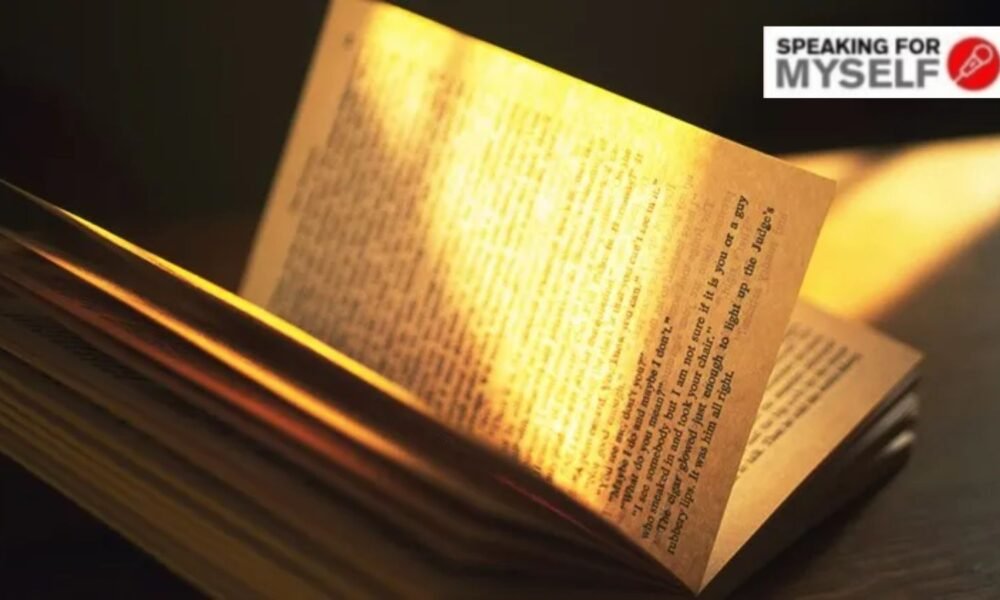
We live in terrible times. That’s why artists can’t lose hope
Does art matter? Debatable. It doesn’t stop bombs from dropping over a thin strip of land, killing thousands of babies for a mythological promise. It doesn’t stop politicians from lying on podiums, returning to power years later, only to spin new lies with the proficiency of novelists they love to lambast. It doesn’t stop beggars from roaming the streets, sleeping under bridges, or stealing money from grocers because there’s no other way to make it through the day. It doesn’t — usually — make its way past exclusive galleries, expensive bookstores and fancy auditoriums where the most discerning and educated sit next to each other to pontificate about the virtues of difficult art and the “downmarket” tastes of the poor.
But it does do some other things. After a bad day at work, it allows a journalist like me to nestle into bed and find solace in books written by men who never knew me but talk to me like a brother. It allows an NGO worker, after a back-breaking day collecting funds for disabled children and starving families, to forget the faces who ignored her and lose herself in a sitcom produced by White people who don’t know her but manage to give her memes her friends will like. It allows a doctor to return home after a sweaty, painful, turbulent day, sling the burden of a lost life around his stethoscope, and go to sleep to the sound of Mozart, hoping that tomorrow is a better day, hoping that when the expired patient’s family walks in, he at least has a smile to offer them before they start crying.

Art is a matter of privilege. The guilt has plagued artists for centuries — it certainly has this one. Polite society hates truth-tellers because polite society relies on convenient lies I hear everyday lies like “your job matters”, “you’re making a difference”, “this is good news, you should be happy”. The truth is that artists like me take the privilege we have — of time, money or just identity — and cast its net wide over the world, pulling up out of the ocean whatever we have caught. Usually, it’s a lot of bulls**t: Legalese, jargon, ignorant advice, and we toss it all back to the shore and say, shaking our heads, “Look! We told you. It’s all a lie. It doesn’t really matter.”
But then we artists take a walk. We walk into a library that has children reading laminated books for the first time in their lives. We walk through a planetarium and notice teenagers who have come to the big city after years of longing, this being their first day off from coaching class, vaguely disappointed but hugely impressed at the speed and ferocity of everything here. We walk into a music studio started by a rich and famous composer who invites children from a nearby slum every day to play the guitar, piano and drums, not letting anyone tell them their technique is wrong. We, artists, get a reality check on our own bullshit, and realise that cynicism is for the meek — hope is the revolutionary act.
Writer Toni Morrison advises us from beyond the grave — in a 2015 essay, she writes on “times of dread”: “This is precisely the time when artists go to work. There is no time for despair, no place for self-pity, no need for silence, no room for fear. We speak, we write, we do language. That is how civilisations heal.”
It’s a difficult expectation. Not just for the economist who has thrown her life of stupendous university degrees away to work at a low-paying magazine, not just for the government school teacher who avoids the eyes of better-off friends who keep imploring him to shift to a private school, not just for the lawyer who can’t silence her phone at lunch because she’s awaiting a verdict that might just change somebody’s life — but for anyone. For the engineers who did the degree their parents wanted, for the management graduates attracted to money, for the consultants who struggle to define their job to friends who politely ask again and again because feelings are at stake.
And yet, it must be done. We live in a world of unbearable tragedy, where facts and figures dominate every conversation without advancing any, where money goes again and again to the causes that pollute, pilfer and plunder our earth beyond repair. But this is precisely when artists get to work. We decide not to despair, repeatedly, every day: We are not anybody’s lifeboats, we are violinists aboard a sinking ship. It’s true that no one will come to us for air, but when water starts licking toes, everyone will drop the act, sit next to us, and ask to be reminded, once again, what life sounded like.
udbhav.seth@expressindia.com





No Comment! Be the first one.